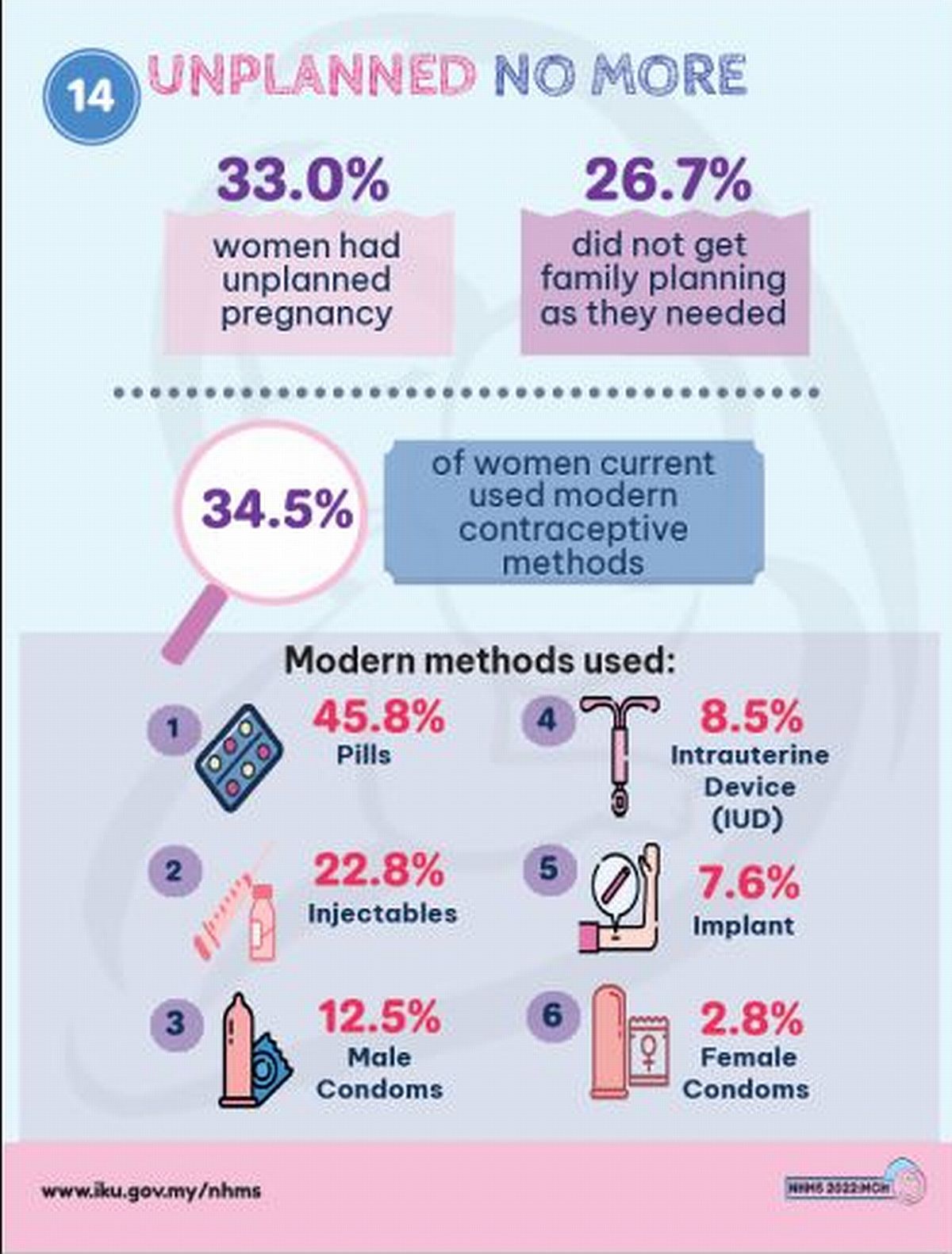KUALA LUMPUR, June 12 – Thirty-three per cent of pregnant women in Malaysia had unplanned pregnancies last year, according to the National Health and Morbidity Survey (NHMS) on Maternal and Child Health 2022.
The survey also found that 26.7 per cent of women did not get family planning as they needed.
In an opinion piece published on Ova last year, Sabah-based obstetrician and gynaecologist Dr John Teo said that about half of unintended pregnancies resulted in abortion, while a substantial number of them are unsafe, causing maternal deaths and permanent health impairment.
He maintained that lack of access to family planning services and low uptake of contraceptive methods are among the known factors linked to high incidences of unintended pregnancies.
Based on the NHMS 2022 survey, 34.5 per cent of women used current modern contraceptive methods.
The survey, which was conducted by the Health Ministry’s Institute for Public Health (IKU), involved 1,877 women of reproductive age between 15 and 49 years, as well as 6,360 mothers.
However, it did not specify if the rate was only derived from married women, or if it also included unmarried women.
Pills were the most commonly used method of modern contraceptive at 45.8 per cent, followed by injectables at 22.8 per cent and male condoms at 12.5 per cent.
Around 8.5 per cent of the women surveyed used intrauterine devices (IUD), with implants (7.6 per cent) and female condoms (2.8 per cent) making up the remaining types of modern contraceptives used.
Social, cultural, political, and religious determinants are also known factors associated with unintended pregnancies, according to Dr Teo, who said that a non-judgmental approach must be instilled to address the problem, with a support system in place for all vulnerable women and teenage mothers.
While a number of doctors have said that the Ministry of Health (MOH) has no policy preventing unmarried women from accessing contraceptives at their facilities, there are anecdotal accounts of women being denied access to contraceptives and other reproductive health services at government facilities.
MOH did not respond to Ova’s request for clarification on this matter made back in March this year.
Similarly, the National Population and Family Development Board (LPPKN) did not reply to our questions, asked around the same time, about whether it has a policy against providing contraceptives to unmarried women at its nur sejahtera clinics.
In her keynote address at a conference on ‘Tackling Unintended Pregnancies in Malaysia’ organised by the Galen Centre for Health and Social Policy in May last year, Pengerang MP and current minister in the prime minister’s department (law and institutional reform), Azalina Othman Said said that unintended pregnancies are a “silent ongoing crisis”, which can not only “lead to further cycles of high fertility, limit educational and employment potential, and prolong poverty”, but also result in “infant abandonment, infanticide and abortion”.












